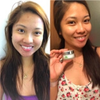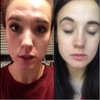Every nation has a land formation they’re proud of and like any other geologic location in the world, our face seemed to have some too. To be specific enough, our face has some bumps like a mountain and well… acne that can be compared to a volcano that secretes substances all over the surface.
Of course, no one would want that, but these breakouts are stubborn enough to develop all over the body. It actually doesn’t just grow on our faces but also on our neck, back, chest and even in the butt. Like a volcano, acne can easily destroy our skin’s flawlessness as it becomes inflamed bump to a noticeable scar.
Let’s take a deeper look at acne. Every skin has a hair follicle where acne development takes place. The moment where oil, bacteria and dead skin cells are gathered inside a hair follicle, acne would always appear.
It can grow on different parts of our body due to the fact that our skin has pores and sebaceous glands where acne matures. There are many signs and symptoms of acne, which are listed below:
- Blackheads (open clogged pores), appears blackish and stiff.
- Papules (Small red, tender bumps)
- Nodules (Large, solid, painful lumps underneath the surface of the skin)
- Pimples (can be called pustules), which are papules with pus at their tips
- Cystic lesions (Painful, pus-filled lumps underneath the surface of the skin)
- Whiteheads (closed clogged pores)
Furthermore, acne has many types and it would be essential to know them to be able to know how to deal with it.
- Non Inflammatory acne. By the name itself, they are identified as whiteheads and blackheads, they don’t get reddish compared to cysts/nodules But it would be another story if you pop it out.
- Inflammatory acne. They are usually caused by small infections due to the bacteria which is most Propionibacterium Acne.
- Cystic acne (or also known as nodulocystic acne). It is an extreme form of acne that is visible on the skin in the form of large nodules which are inflamed.
- Acne Fulminans. It’s a strong and rare formation of inflamed acne that usually affects on the jaw, back and chest of a male adolescent, This is because of the autoimmune complex disease or an increase of androgens (male hormones) and genetic predisposition.
- Acne Mechanica. This type often affects athletes, causing inflamed lesions and small bumps. It is triggered by excess pressure, heat like the summer sun; and friction from backpacks, tight clothes or bra straps.
So what are the actual causes of acne?
There are only two causes of acne outbreaks. Heredity and Hormones, these two play a vital role in the formation of geological structures on our faces. As for heredity, our family’s skin types may be prone to acne than others’ skin types. On the other side, hormones can cause a rise in the sebaceous glands’ oil production, which also raises the possibility of a clogged pore.
However, there are still many factors out there that could support the two vital causes of acne. As everyone in all ages can experience acne outbreaks, but it's most commonly experienced by teenagers. Furthermore, gender can also affect an acne outburst as males are discovered to have worse acne cases than women. Another thing would be the reason that our skin may cultivate acne when it comes into contact with grease in a work area, like a kitchen with fry vats or with oily lotions and creams. Lastly, if you have acne already, stress may make it worse.
How Long Does It Take for a Breakout to Go Away?
In common, untreated acnes usually go away after 3-5 years. However, it actually depends on our skin types along with many other factors. Those with oily skin have lesser chances of making acne go away. Moreover, age could also do a great role as they affect the hormonal production of a person causing them either not or be prone to acne.
It is critical that we should not pop out our acne as this would just make the acne go away longer than the usual. It is also suggested that you should treat your acne for quicker and lesser acne problems. Here are different ways to address them and make them go away after a few months.
Using Conventional treatment
- Benzoyl peroxide can reduce inflammation, infections and redness, but it could sometimes cause negative reactions on the skin like peeling, dryness and burning. It also helps kill bacteria found in pores, which would then help to prevent pores from clogging. In using it, the dermatologist recommends to always start with a lower concentration to test your skin’s reaction, such as a lotion with 2.5 percent benzoyl peroxide.
- Salicylic acid is also a common active ingredient that helps remove excess cells that trap bacteria and sebum inside the pores like benzoyl peroxide, it can also cause dryness and redness, especially on sensitive skin. Thus, you should start with a product containing 0.5 percent to 3 percent salicylic acid.
We Recommend Natural Acne Treatment Such As Tea Tree Oil
- Tea Tree Oil Acne Cream - Keeva's Tea Tree Oil Acne cream is nature's most powerful weapon against acne. It actually leaves your skin moisturized (not irritated and red like traditional treatments. Learn More Here.
Using Home Remedies
- Lemon – Lemon isn’t just an excellent acne remedy, but it can also reduce the chances for red marks and scarring when the pimples heal. To use we rub a freshly squeezed lemon juice on the affected area three times per week. There’s a precaution because lemon has properties that would make dry skin worse, so it would be recommended to put moisturiser afterwards.
- Tree Oil – It has natural inflammation fighting properties that would be best in treating acne. Compared to benzoyl peroxide solution, it can do the same results having a 5% less harsh solution. For better results, we could mix it with the extracts of Witch Hazel.
- Honey – Honey possesses anti-inflammatory, antimicrobial, antioxidant, cleansing, and healing properties that make it a very effective ingredient in treating acne. Best results are through the use of raw honey mixed with many other ingredients such as Oatmeal, Tomato, Aloe Vera, Garlic, Coconut oil, Apple Cider Vinegar and even Aspirin.
- Aloe Vera – Its properties promote healing, reduce scarring and fight infection, which is perfect in fighting acne away. To use it, we scrape the gel out of the aloe plant and directly apply it to acne infected skin. We could also mix it with other remedies to improve the results.
- Apple Cider Vinegar – This remedy can reduce red marks, exfoliate the skin and treat acne as a whole all thanks to its lactic and malic acids. We could use it as a toner and to make it, we mix the equal amount of water and vinegar and apply it to the affected area using a cotton ball.
- Green Tea – From inner health to the outside appearance, green tea is known to be good for everything. It fights well against bacteria because of its anti-inflammatory properties and Catechins, which are anti-microbial components. Also, green tea can treat hormonal imbalances and neutralize damage causing radicals that could prevent acne breakouts. It also can refine and unclog our skin’s pores.
Changing your daily lifestyle
- Exfoliate daily – To remove dead skin and clogged pores, we need to exfoliate our skin. You could use sea salt, grounded oatmeal and even brown sugar to exfoliate the skin.
- Clean Gently – Without any second thoughts, know that treating your skin harshly would only make your acne problem worse. Try cleaning your skin without causing irritation. Use products that aren’t that concentrated especially in synthetic ingredients.
- Avoid too much sun exposure – The sun has ultraviolet rays that increase skin scarring through stimulating pigment-producing cells and at the same time it makes an acne breakout worse.
Remember that no matter how you treat your acne, you must be vigilant enough to: avoid picking blemishes; stop believing that to be able to fight acne, the only necessary thing to do is tropical care of the skin; failure to keep the skin hydrated, failing to treat the skin inside out; don’t over clean your face with chemicals; lastly let your skin adapt to the new care you're applying, it does not mean if it won’t work within a day, the treatment is useless.
Furthermore, if you are suffering from cystic acne, it would be best to ask for a remedy from your dermatologist for those cases can have different healing processes and intensive treatments.
When can you say that acne is gone?
There’s really no specific description to know that your acne is gone, but here’s the good news, treated acne will either just leave a scar or be gone completely. It will all depend on how you deal with your skin. Again, doesn’t mean your acne seemed dead, you’ll stop taking care of it.
Simple actions like cleaning daily and eating wisely would really help a lot in preventing acne breakouts in the future. In fact, the list goes on but it will always and always depends on how you maintain your new lifestyle. There’s really not much effort needed in dealing with acnes after all, the battle starts when you’re maintaining it.
Acne goes away, yes. However, as much as we hate it, acne, loves to go back and we wouldn’t want that for sure and so may we be a responsible individual when it comes to our skin. It’s not for the benefit of others after all.








 Verified Purchase
Verified Purchase


